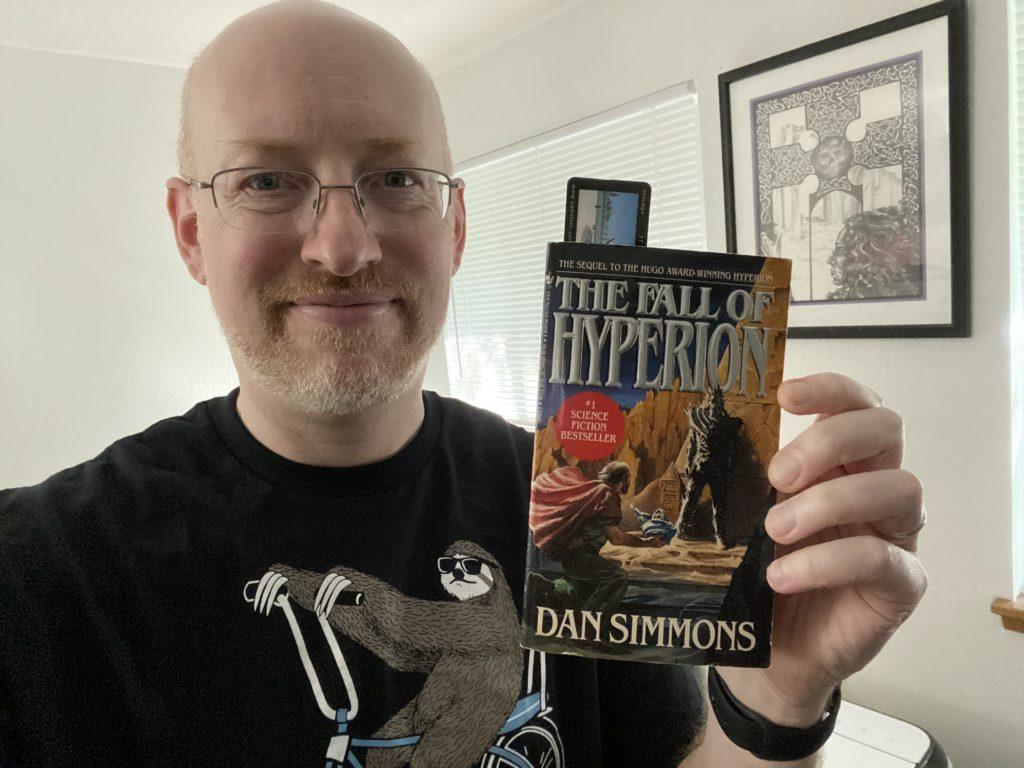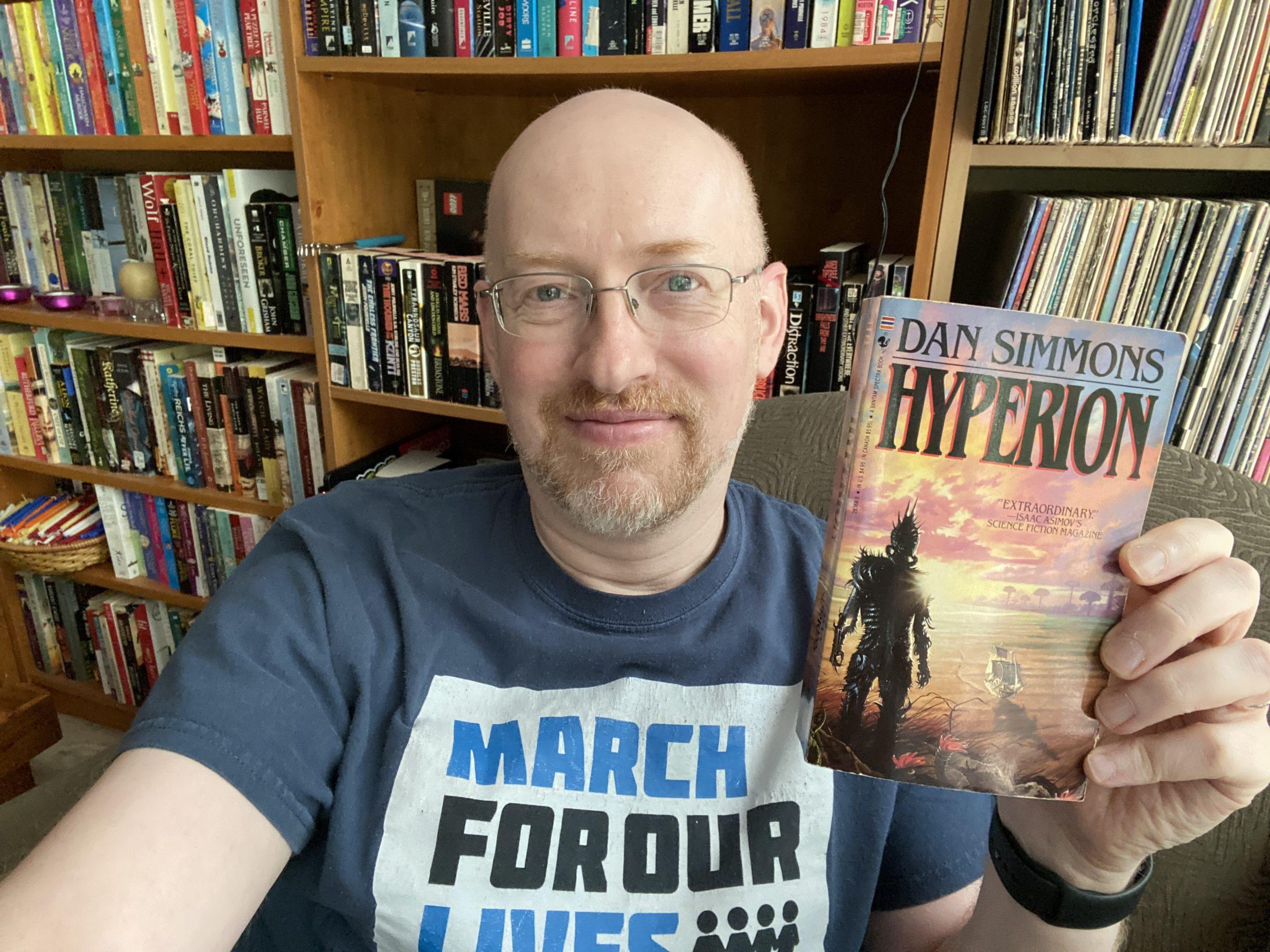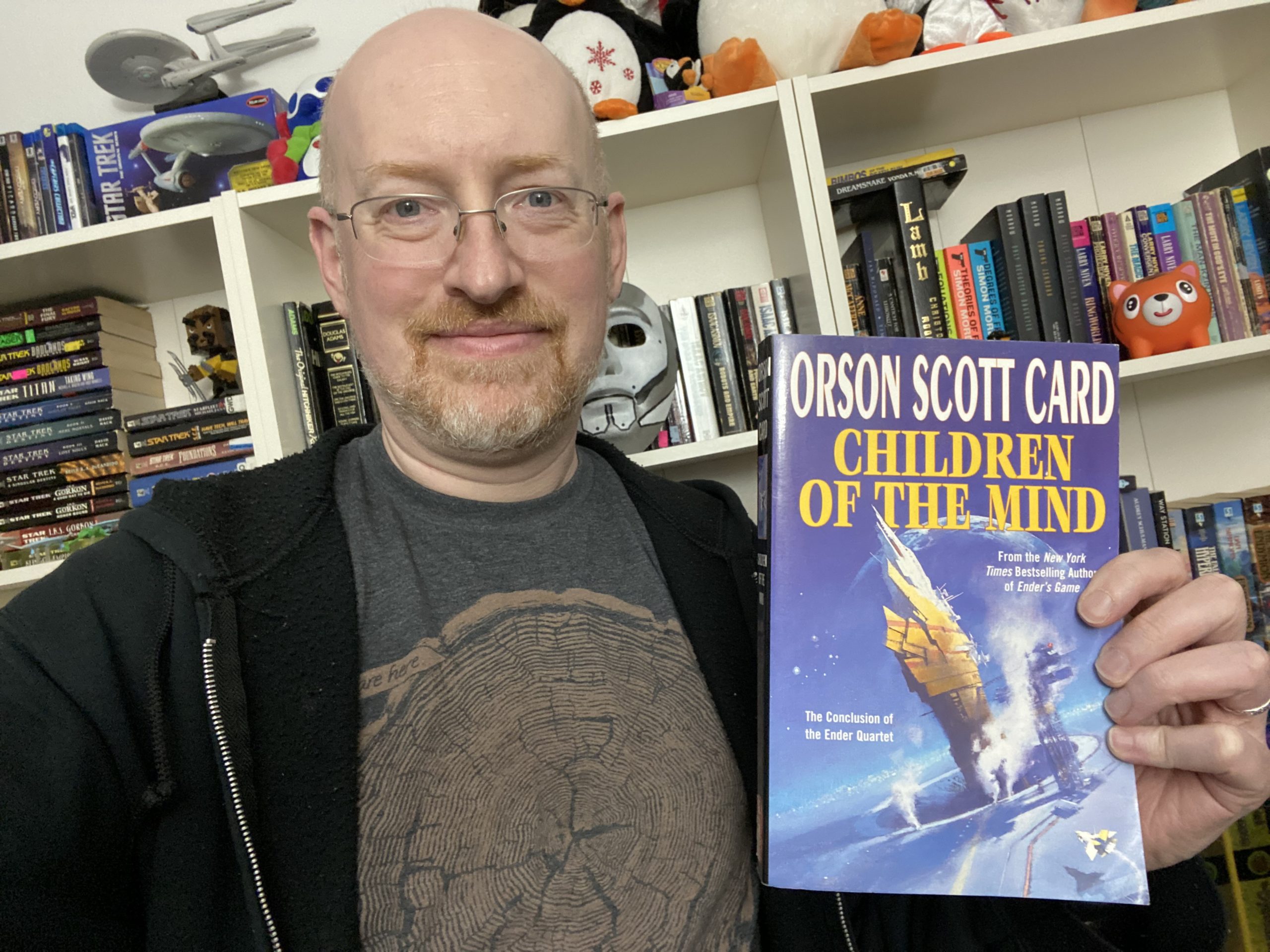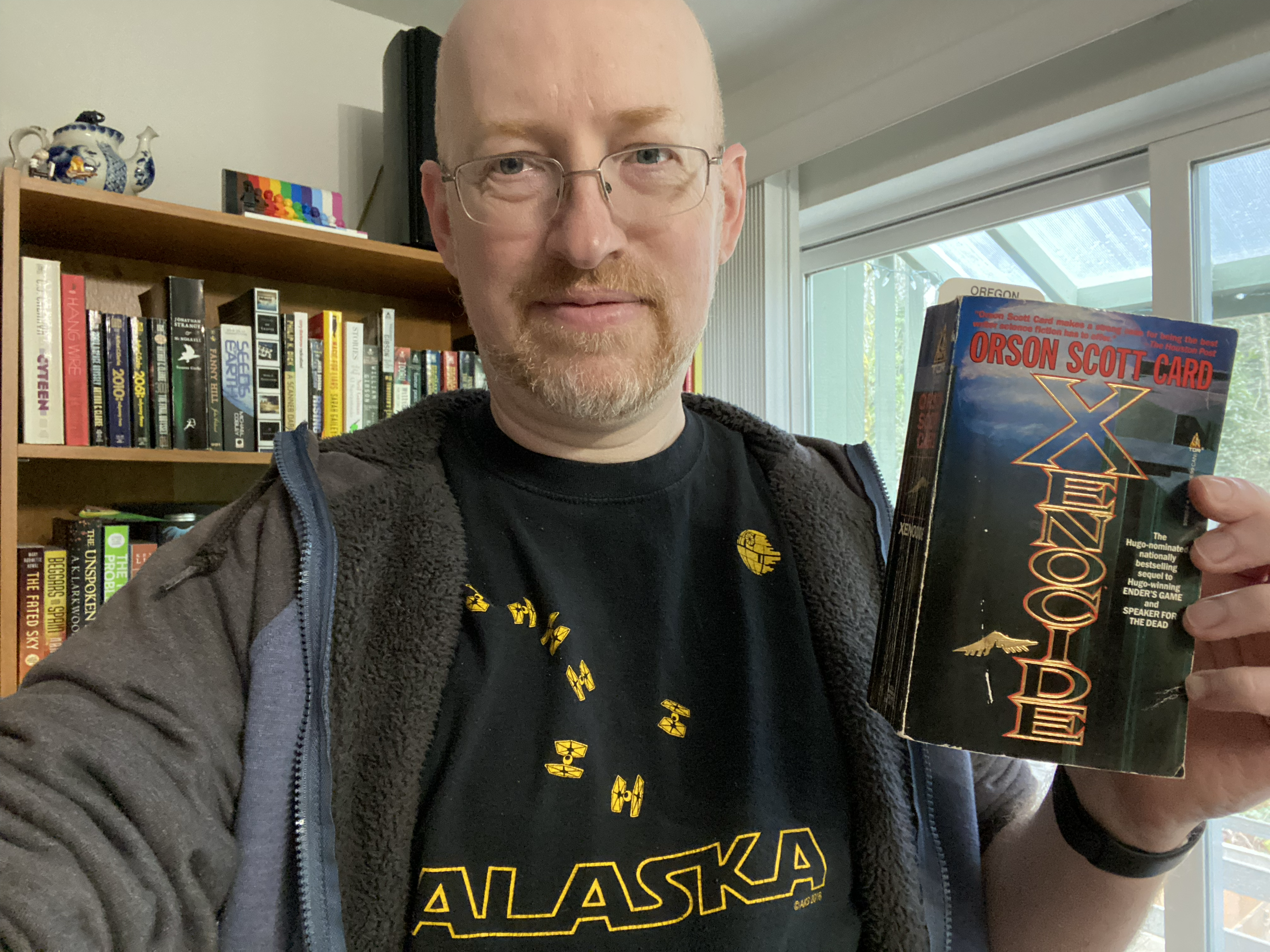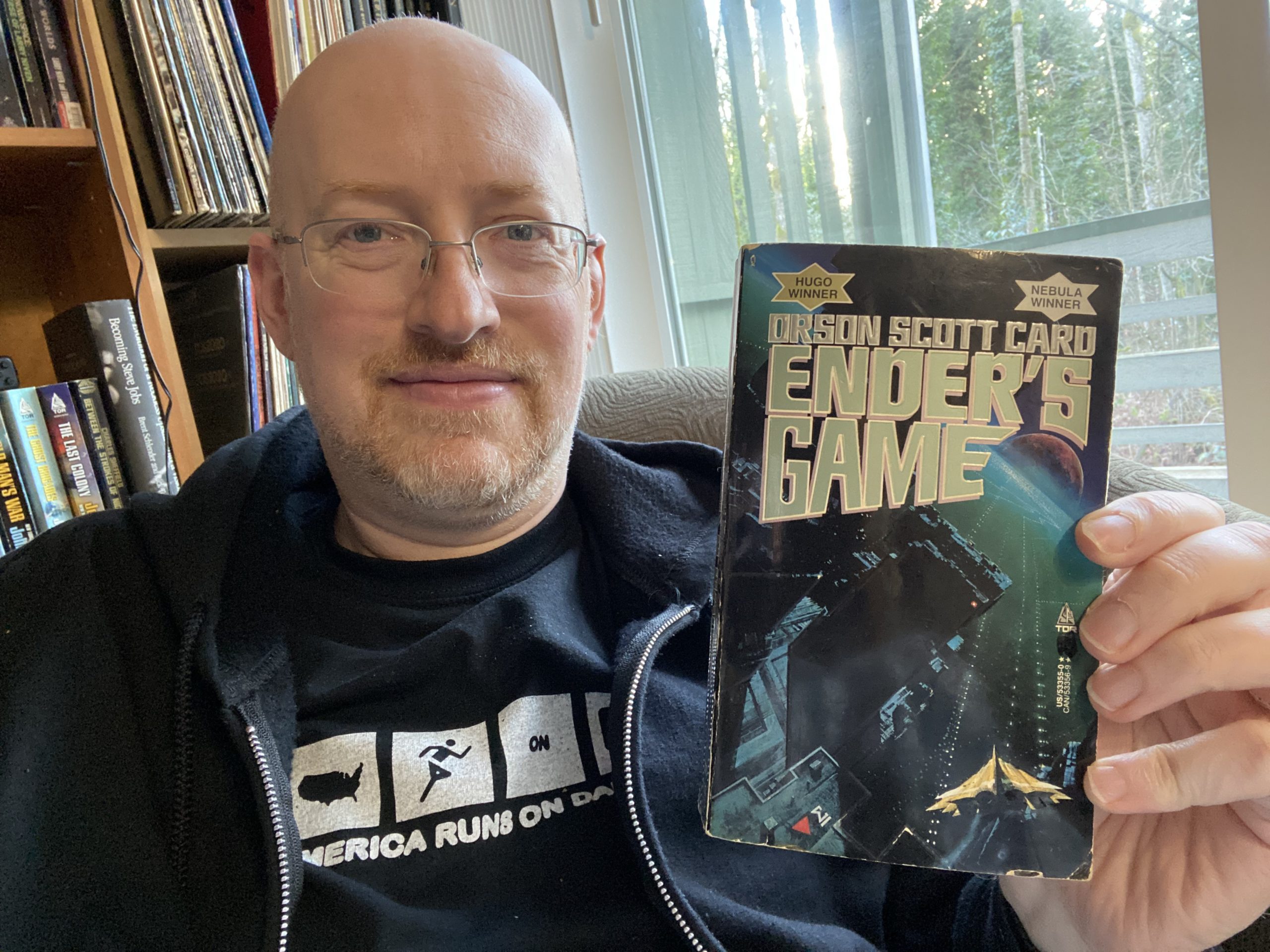For my own purposes, a (not comprehensive) list of currently known milkshake ducks in my media libraries, how I’m treating their work in my own consumption habits, and any rationales or justifications for these decisions. You may not agree with any or all of this, and that’s fine. This is kind of an exercise to help me figure out why I’ve made the decisions I have, and perhaps, whether I should rethink or change those.
This is being actively updated as my mind processes, and likely will continue to be updated as I think and if (or, unfortunately, when) more people out themselves as belonging to this category.
- Scott Adams: General right-wing buffoonery, including sexism, racism, anti-science views, etc.
Haven’t really paid much attention to him in years anyway, thanks to his eye-roll inducing rants, but do have the very fancy oversized 10-year anniversary collected Dilbert, which was last taken off the shelf to see if it was the right size to prop up part of our couch (it wasn’t). Will probably offload it at some point. - Woody Allen: Sexual abuse
Not watching any new work or supporting by buying old work. Keeping and will occasionally rewatch old favorite films already in the collection. While I certainly don’t wish death upon him, his eventual passing will mean that I’ll be more easily able to justify finding those of his films that I know I enjoy but won’t purchase now. - Piers Anthony: Sexism, misogyny, pedophilic themes
Any of Anthony’s books I had in my collection got booted years ago, after I started re-reading the Xanth series, got through the first two while getting increasingly uncomfortable, and then doing a little research and discovering just how bad it got. I couldn’t imagine having those on my shelves if any of my niblings ever went looking for something to read. - Orson Scott Card: Homophobia
Not buying any new stuff, though I did pick up used copies of the first few Ender’s Game/Speaker for the Dead sequels and read some of them after reading those two Hugo winners (I think I still have some to go). From what I’ve seen, OSC hasn’t been nearly as vocal or influential as he once was, the Ender’s Game books are too foundational to my early SF reading to write them off, and my re-read for my Hugo best novel reading project confirmed just how good they are — and, interestingly, how drastically their message of inclusion contrasts with OSC’s statements. Unlike Anthony, whose beliefs are very obvious in his work, OSC’s work actually doesn’t hint at his personal beliefs (and in many ways, actually seems to contradict them), so it’s much easier for me to justify keeping his books on my shelves. - Neil Gaiman: Sexual abuse
Still adjusting to this one. Won’t be buying, reading, or watching any new projects. Keeping books and films already in the collection, but it’ll probably be a while before I feel like re-reading anything (and just decided to skip his two Hugo award winning novels in my Hugo reading project). - J.K. Rowling: Transphobia
Not buying, reading, watching, or otherwise supporting any projects. Haven’t ditched the Potter books or films already in the collection, but not re-reading the books (and just decided to skip her one Hugo-award winning Potter book in my Hugo reading project) or re-watching the films. Stopped subscribing to HBO’s Max streaming service in part because of their decision to move forward with a new Harry Potter series. - Dan Simmons: Islamophobia
The same basic bucket as OSC: Not reading anything that isn’t already in my collection, but the Hyperion cantos was too mind-blowing to entirely ditch.

